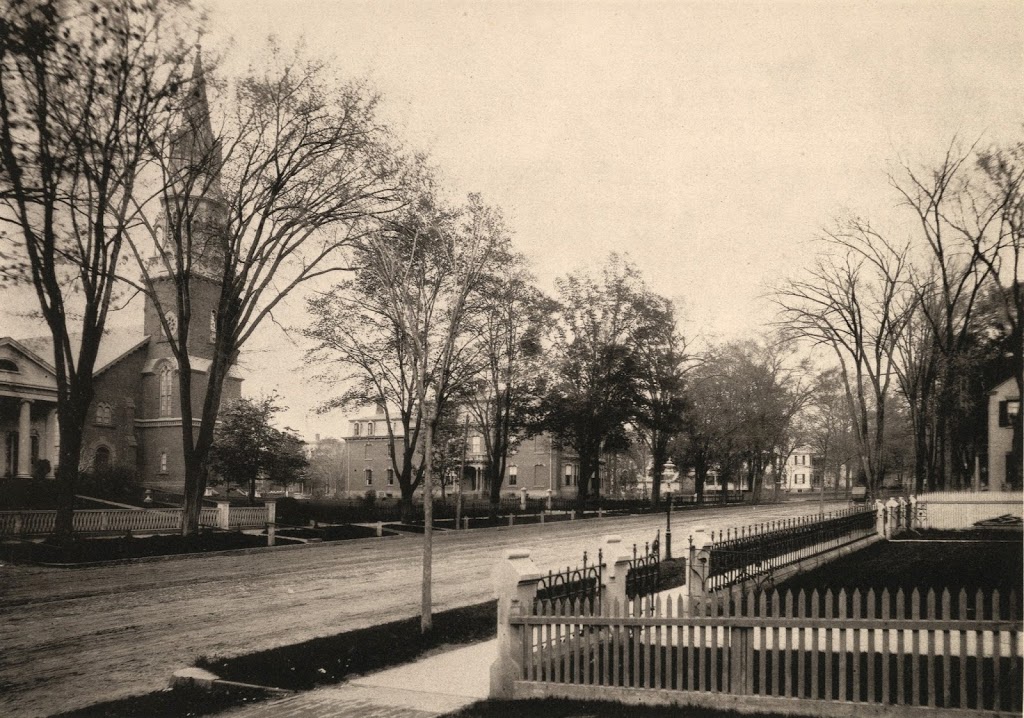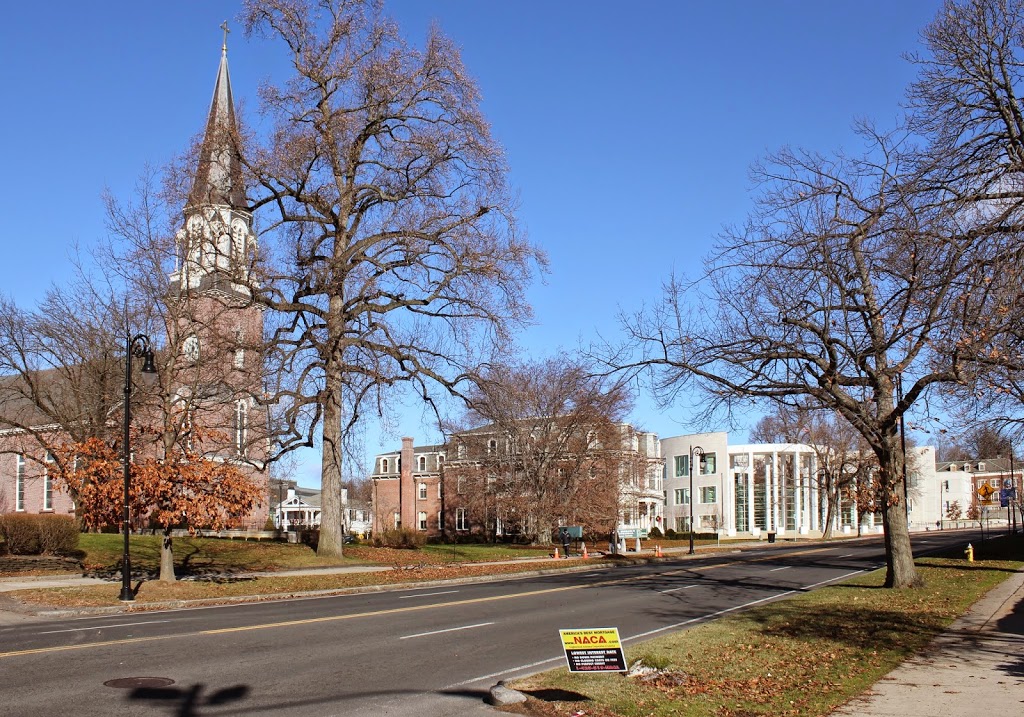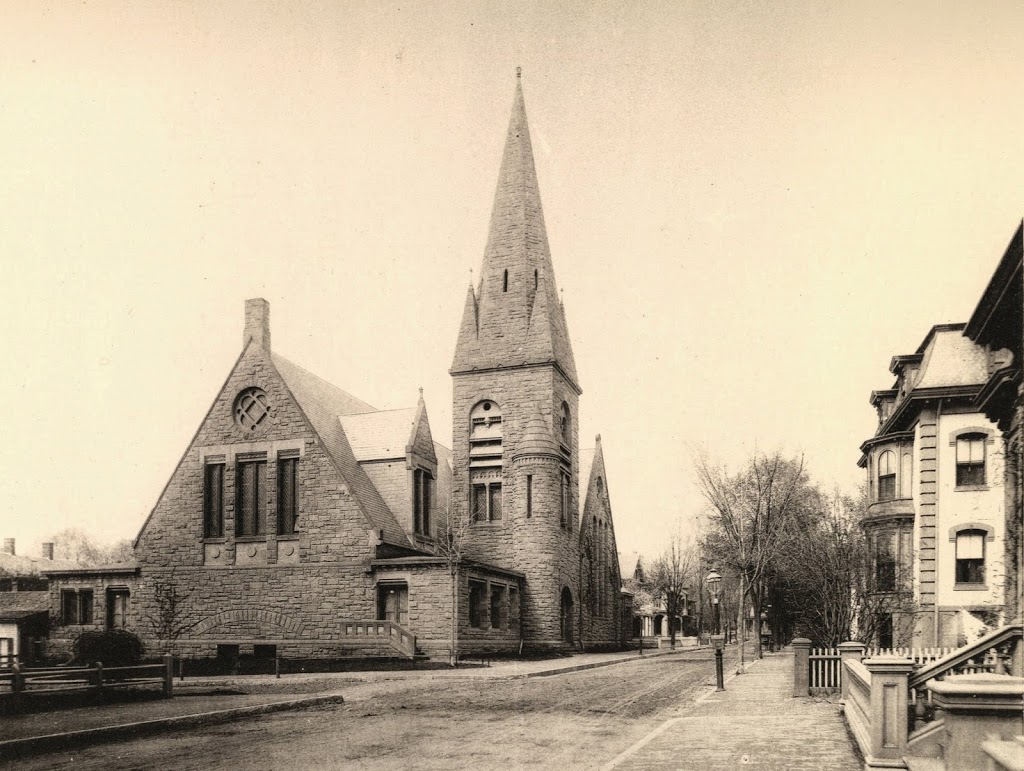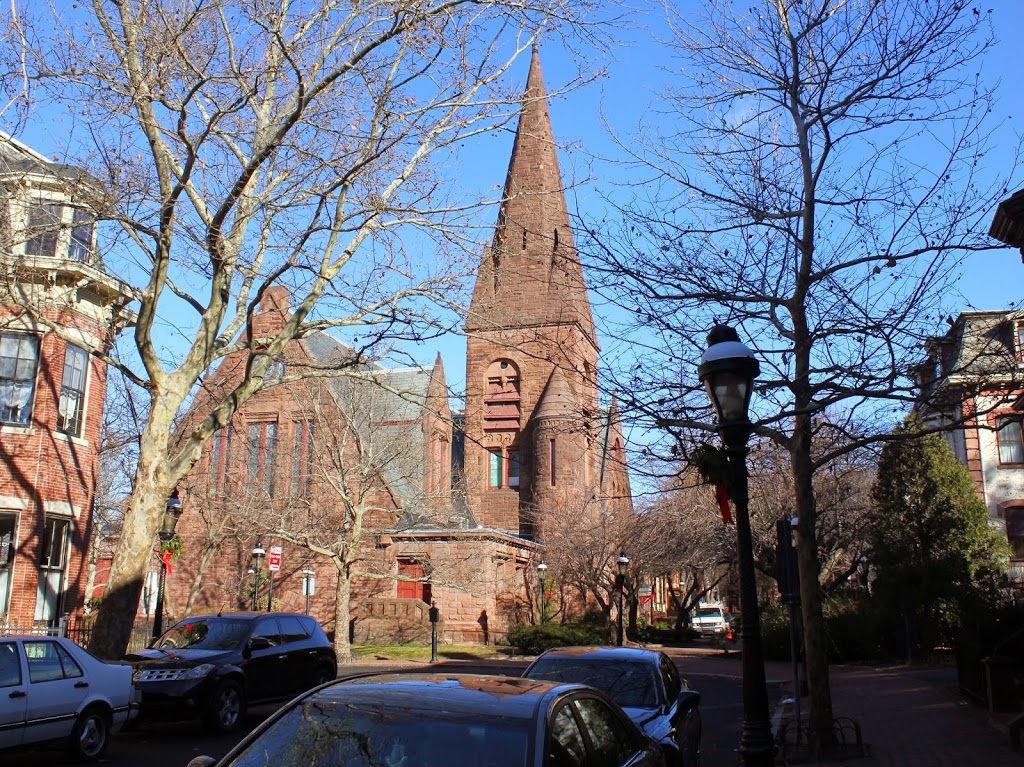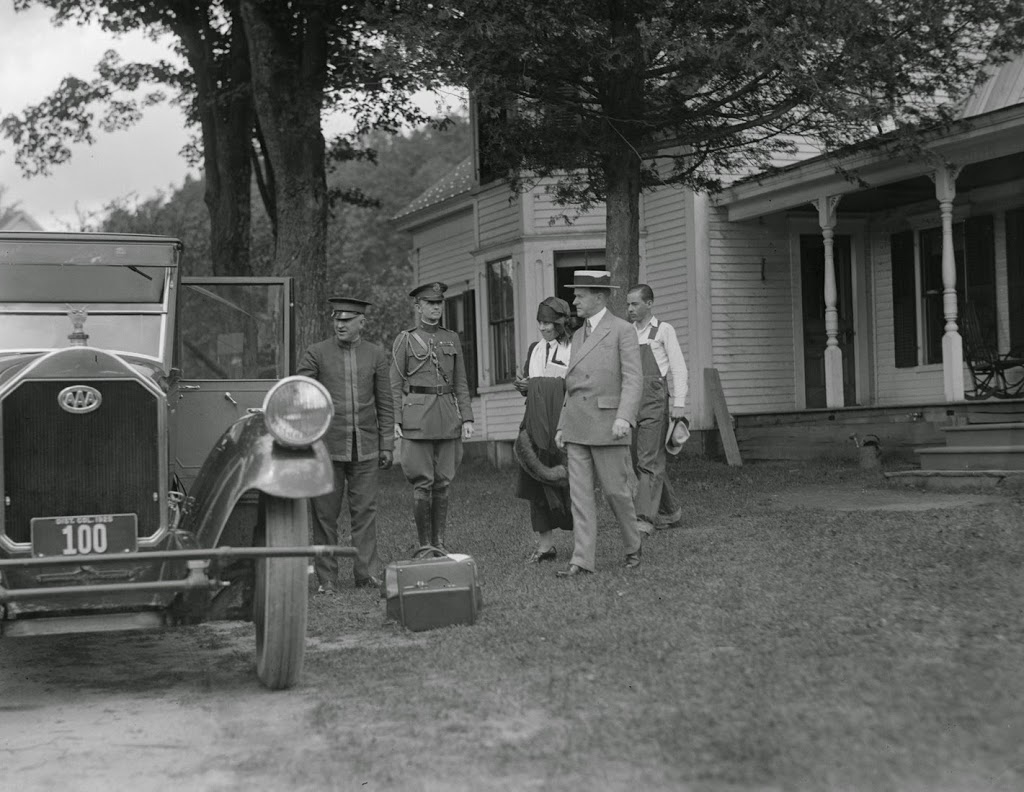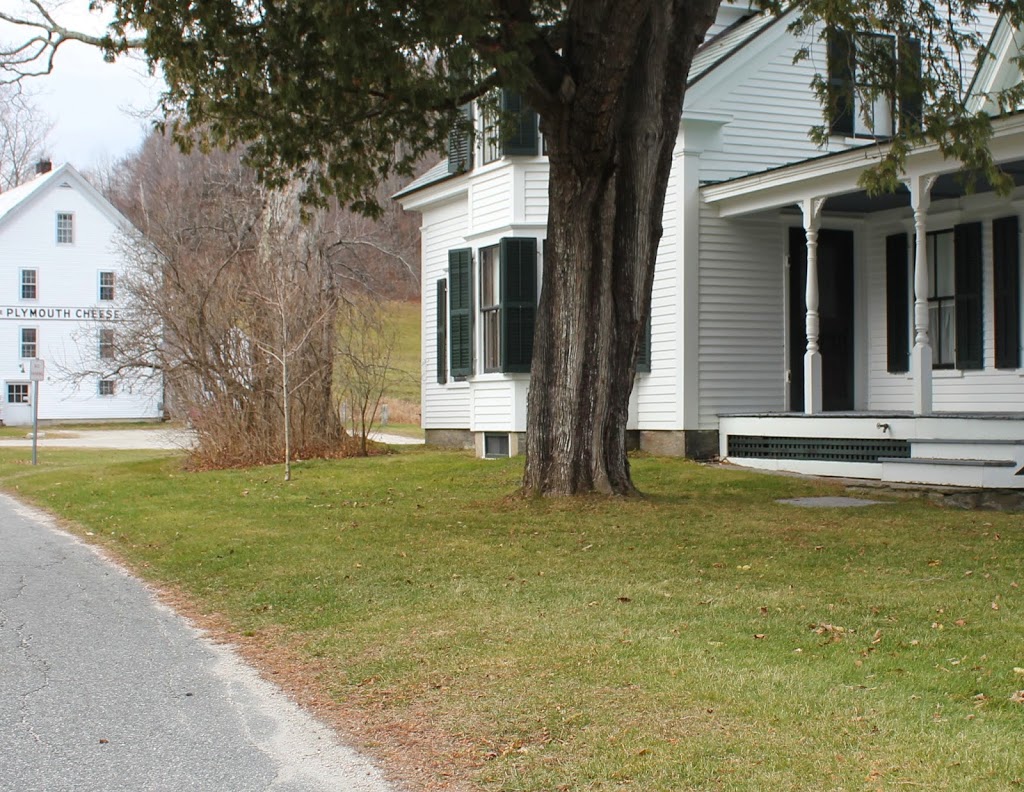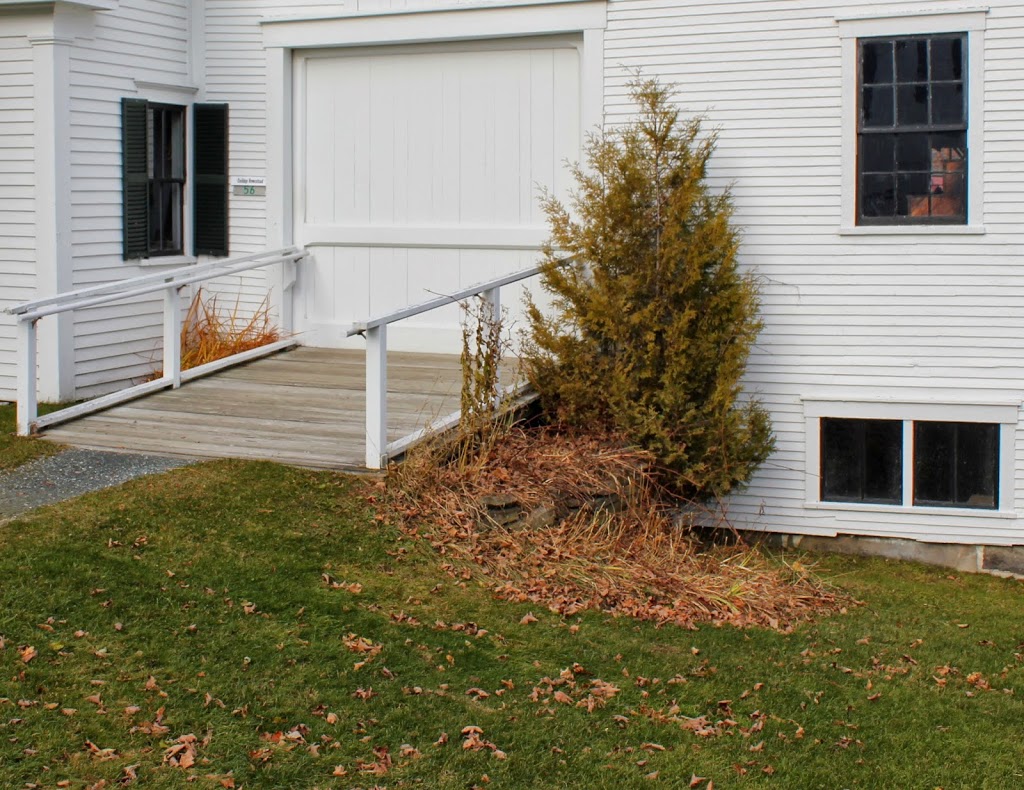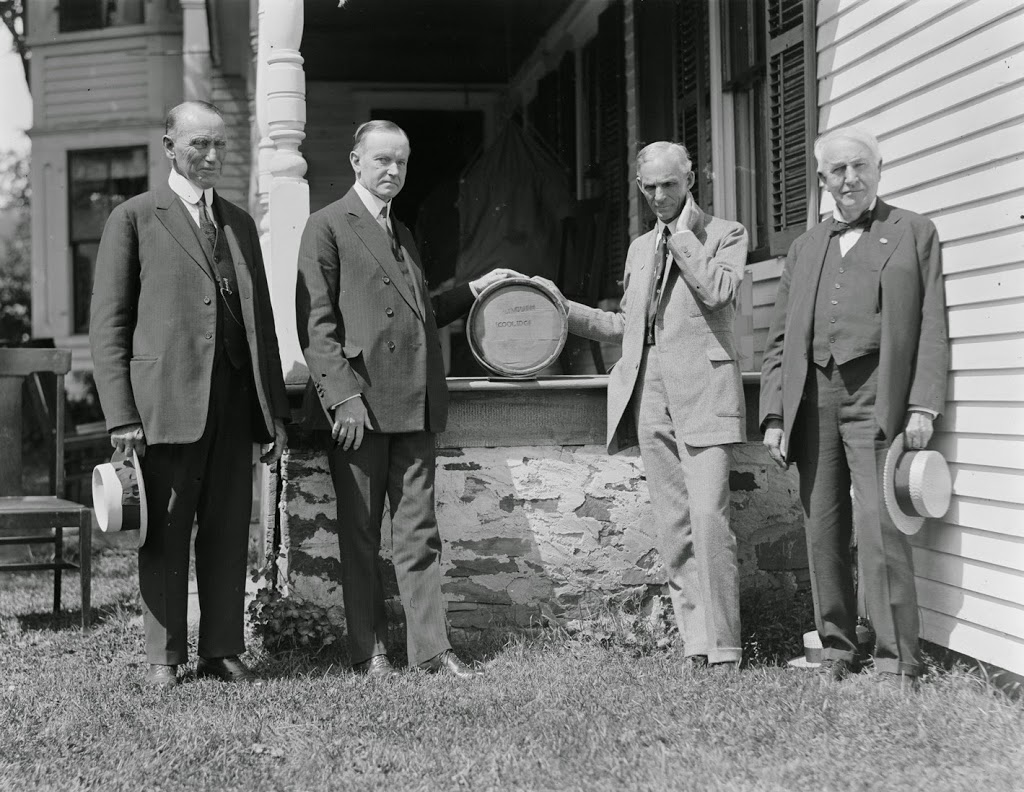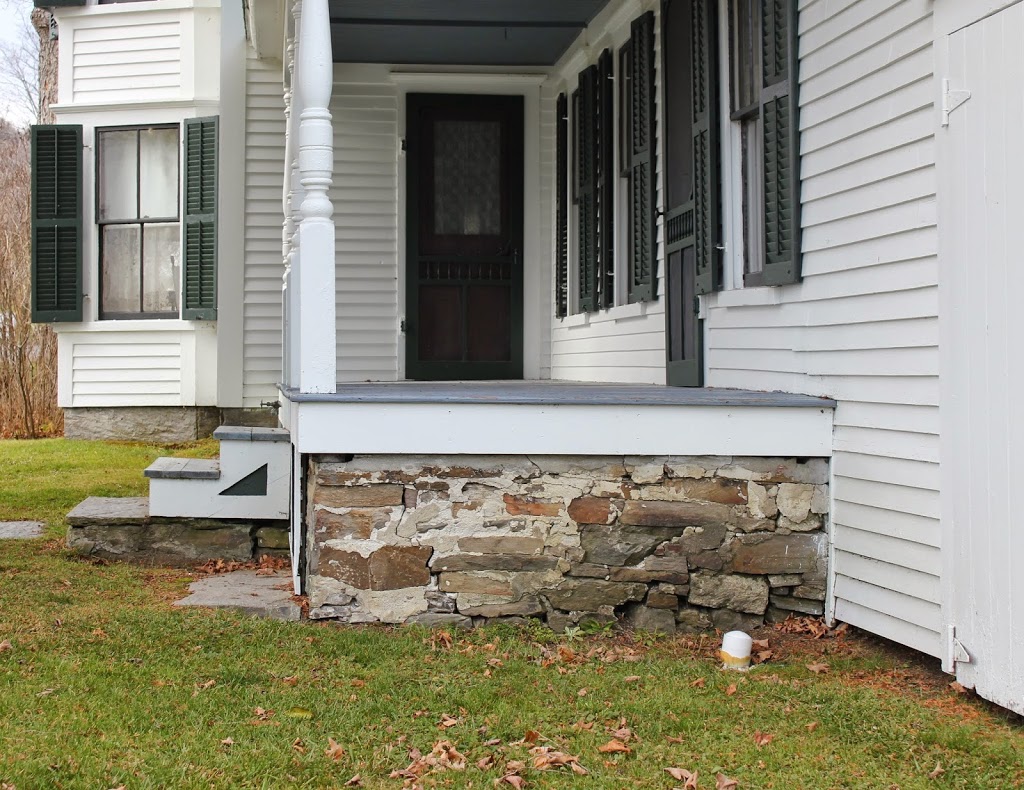President Calvin Coolidge sits with some notable guests at the Coolidge home in Plymouth, Vermont on August 19, 1924. Photo courtesy of Boston Public Library, Leslie Jones Collection.
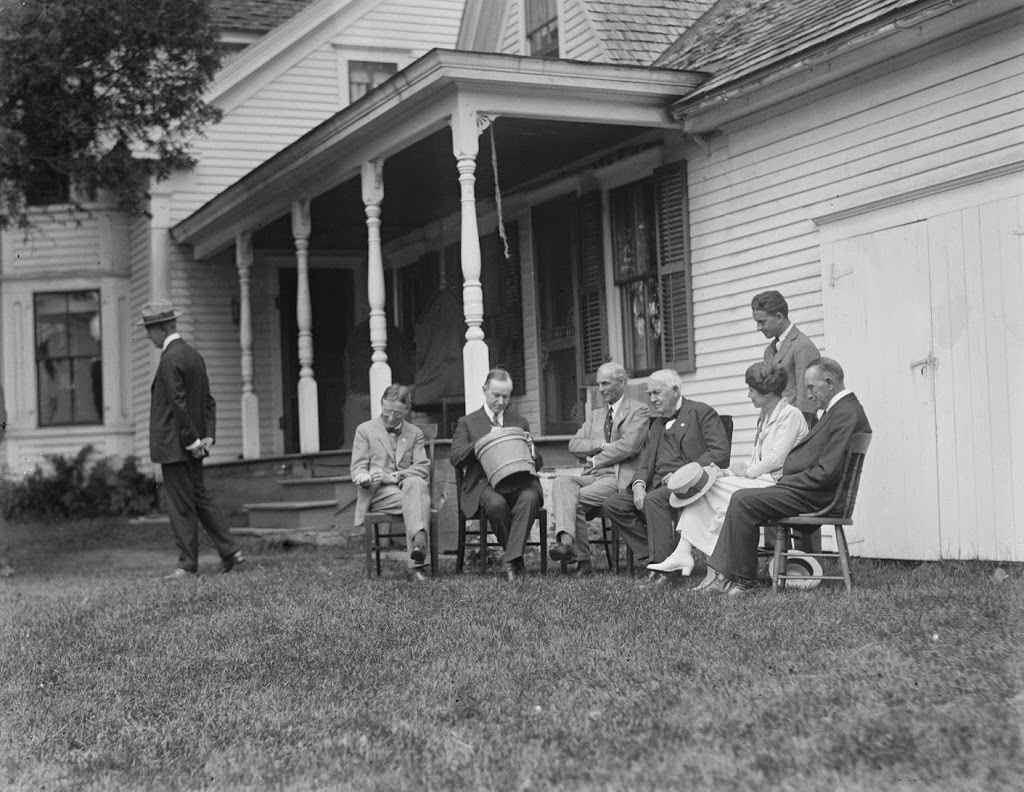
The house in 2014:
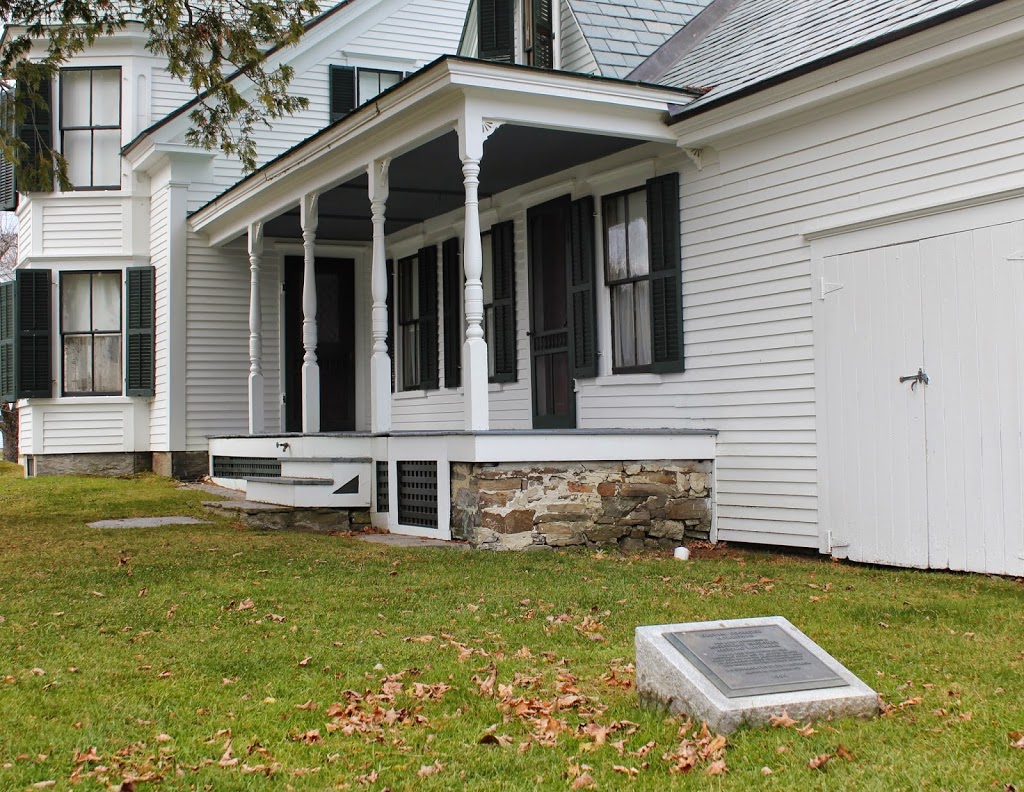
In the early 1920s, automobile ownership was starting to increase among the American public, in part because of the marketing tactics of some of the men in the 1924 photo. Seated from left to right are Harvey Firestone (yes, that Firestone), Calvin Coolidge, Henry Ford, Thomas Edison, Grace Coolidge, and John Calvin Coolidge, Sr. Standing behind Mrs. Coolidge is Russell Firestone.
For the past 10 years, Edison, Ford, and the Firestones had been taking camping trips across the country to publicize recreational use of automobiles. During one such trip in August 1924, the industrial giants stopped at Plymouth to visit the president, and although they only stayed for an hour, the journalists covering the president’s vacation made the most of it, photographing the group in front of the Coolidge Homestead. While the guests were there, President Coolidge gave Henry Ford a gift: a sap bucket that had belonged to his great-great grandfather. He signed his name on the bottom of the bucket, which is what he appears to be doing in this photo. Footage of this ceremony can be seen starting at about the 1:45 mark of this film.

